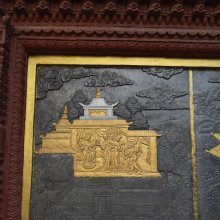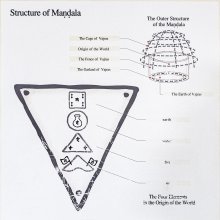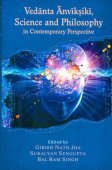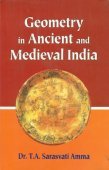Science, Scientific: 4 definitions
Introduction:
Science means something in Hinduism, Sanskrit, the history of ancient India, Hindi. If you want to know the exact meaning, history, etymology or English translation of this term then check out the descriptions on this page. Add your comment or reference to a book if you want to contribute to this summary article.
Images (photo gallery)
In Hinduism
Vastushastra (architecture)
Source: archive.org: Bharatiya vastu-sastraScience (of Architecture).—In India we can not draw a line of demarcation between Science and Philosophy. The truth is, a science without a philosophy or religious background is not a complete science, according to Hindu view of life. It is in keeping with the fundamental background of the Indian science that even such a practical or matter of fact science as the science of architecture is, has such a lofty philosophical theory as ‘Vāstu-brahma-vāda’ or ‘Vāstu-puruṣa-vāda’ as its background. The growth and evolution of the temple, the chief feature of Indian architecture both in the ancient and medieval periods of Indian History, represents this ideal of the architectural science from the bottom to the top (vide Part V. the prāsāda-vāstu).

Vastushastra (वास्तुशास्त्र, vāstuśāstra) refers to the ancient Indian science (shastra) of architecture (vastu), dealing with topics such architecture, sculpture, town-building, fort building and various other constructions. Vastu also deals with the philosophy of the architectural relation with the cosmic universe.
Ayurveda (science of life)
Source: Shodhganga: Plant mutagenesis in ancient IndiaThe Scientific temperament of the ancient Hindus is proved by the numerous scientific treatises that have come down through the ages. They experimented to great depths in order to disover the laws of the nature as well as to use them to their advantage. One such science is the science of druma-vicitrī-karaṇa, i.e., “plant mutagenesis”— a branch of hroticulture. This is akin to the modern day plant biotechnology. The objectives of the ancient science are almost silimar to the objectioves being deal by the modern biotechnologists.

Āyurveda (आयुर्वेद, ayurveda) is a branch of Indian science dealing with medicine, herbalism, taxology, anatomy, surgery, alchemy and related topics. Traditional practice of Āyurveda in ancient India dates back to at least the first millenium BC. Literature is commonly written in Sanskrit using various poetic metres.
India history and geography
Source: archive.org: Hindu Mathematics (History)Books on the Exact sciences were translated from Sanskrit and transmitted to Arab literature.—The foundations of Arabic literature and science were laid between 750-850 A.D. This was done chiefly with the aid of foreigners and with foreign material. The bulk of their narrative literature came to the Arabs in translation from Persian. Books on the science of war, the knowledge of weapons, the veterinary art, falconry, and the various methods of divination, and some books on medicine were translated from Sanskrit and Persian. They got the exact sciences from Greece and India.

The history of India traces the identification of countries, villages, towns and other regions of India, as well as mythology, zoology, royal dynasties, rulers, tribes, local festivities and traditions and regional languages. Ancient India enjoyed religious freedom and encourages the path of Dharma, a concept common to Buddhism, Hinduism, and Jainism.
Languages of India and abroad
Hindi dictionary
Source: DDSA: A practical Hindi-English dictionaryScience in Hindi refers in English to:—(nf) science; ~[dam] a scientist..—science (साइंस) is alternatively transliterated as Sāiṃsa.
...
See also (Relevant definitions)
Ends with: Buddhism And Science, Military science, Nanoscience, Omniscience, Veterinary science.
Full-text (+10571): Ayurveda, Shastra, Shastriya, Ganita, Jyotisha, Vijnana, Vidya, Vedanga, Anvikshiki, Dandaniti, Hayayurveda, Tarkavidya, Tandi, Nitividya, Shiksha, Astravidya, Tantra, Vastushastra, Nanashastra, Gandharvavidya.
Relevant text
Search found 347 books and stories containing Science, Scientific; (plurals include: Sciences, Scientifics). You can also click to the full overview containing English textual excerpts. Below are direct links for the most relevant articles:
Has India at present any Philosophy’, as such, of Her Own? < [Jan-Feb 1940]
The Value of Philosophy < [January – March, 1996]
The Message of the Upanishads < [January - March 1972]
Animal Kingdom (Tiryak) in Epics (by Saranya P.S)
Chapter 1.7 - Myth–Reality and science
Chapter 1.12 - Origin of sciences
Philosophy of Charaka-samhita (by Asokan. G)
Ill-fate of Āyurveda and other sciences < [Chapter 1 - Introduction]
Methodological inadequacy of modern sciences < [Chapter 1 - Introduction]
Introduction < [Chapter 1 - Introduction]
Bhesajjakkhandhaka (Chapter on Medicine) (by Hin-tak Sik)
Biomedicine (Western medicine)—Brief History and Basic Principles < [Chapter 2 - Background Information]
(b) Basic Principles of Biomedicine (Western medicine) < [Chapter 2 - Background Information]
(a) Brief History of Biomedicine (Western medicine) < [Chapter 2 - Background Information]
Significance of the Moon in Ancient Civilizations (by Radhakrishnan. P)
5. Limitation of the Research < [Chapter 1 - Preface to Research Work]
16. Conclusion < [Chapter 15 - Conclusion]
Social philosophy of Swami Vivekananda (by Baruah Debajit)
Related products
(+136 more products available)











